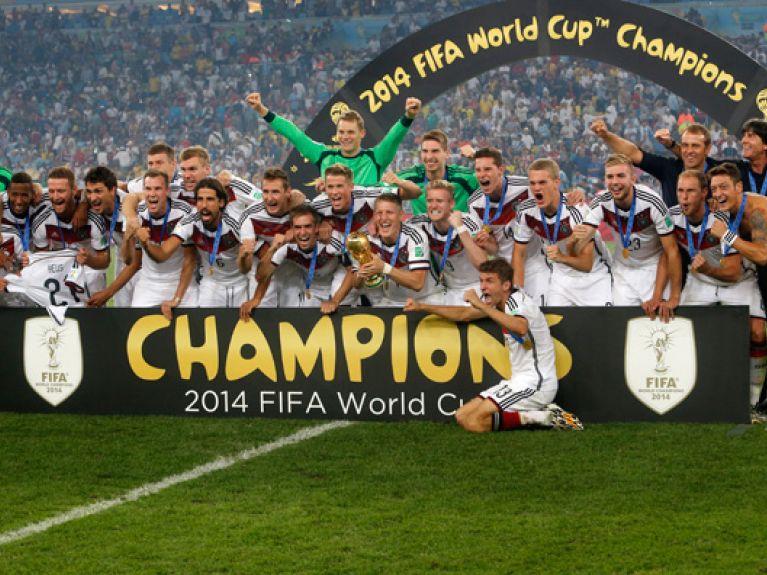The topics of 2014
Which subjects have left their mark on the past year in Germany? A review.

FIFA World Cup
Previously the German national football team lacked an emotive nickname like La Furia Roja (The Red Fury) for the Spanish eleven. That changed in 2014. At the World Cup championship in Brazil the squad managed by Joachim Löw did not only win the title and with it a fourth star; their impressive team performance made them “die Mannschaft”, “the Mannschaft” or “la Mannschaft”. However, the FIFA World Cup will soon be followed by the UEFA European Championship – and after the retirement of several key players, including Captain Philipp Lahm, “die Mannschaft” has to find itself again.
25th anniversary of the fall of the Wall
A quarter of a century after the fall of the Wall, Berlin remembered the division of Germany with thousands of balloons along the former border. When the white balloons rose into the sky over Berlin, symbolising the disintegration of the Iron Curtain, over one million people in the German capital alone celebrated the triumph of freedom. People all over the world remembered 9 November 1989. “Dreams can come true. Nothing has to stay the way it is,” said Federal Chancellor Angela Merkel, who stems from the former GDR, during the official ceremony in the German Bundestag.
Refugee catastrophe
In and around Syria the world is experiencing the largest refugee catastrophe since the end of the Second World War. By the end of 2014 alone, 3.6 million Syrians will have fled to neighbouring countries, also out of fear of the terrorist militia IS. In autumn 2014, Germany organised a conference on refugees, because the infrastructure and social systems of countries like Lebanon and Jordan are reaching their limits. More and more people from Syria are also fleeing to Germany, which has taken in the highest number of Syrian refugees within the EU.
Ebola
One year after it broke out, the danger posed by the Ebola epidemic in West Africa has still not been averted. Meanwhile thousands of people have died as a result of the disease, and help is still urgently needed in the affected region. The Federal Government has made available a total of 150 million euros for the fight against Ebola. This has been used, for example, to set up an air bridge for aid flights and to deliver 300 motorcycles with refrigeration units to enable blood samples to be transported to laboratories quicker. The Special Representative of the Federal Government, Ambassador Walter Lindner, admitted that Germany, like many international actors, was late in responding to the epidemic. Private initiatives are also becoming involved: for example, Campino, the singer of the German band Die Toten Hosen. Following the model of Bob Geldof’s initiative in the UK, he and a group of fellow artists recorded a German version of the Band Aid classic “Do They Know It’s Christmas?” to collect funds for the fight against the epidemic.